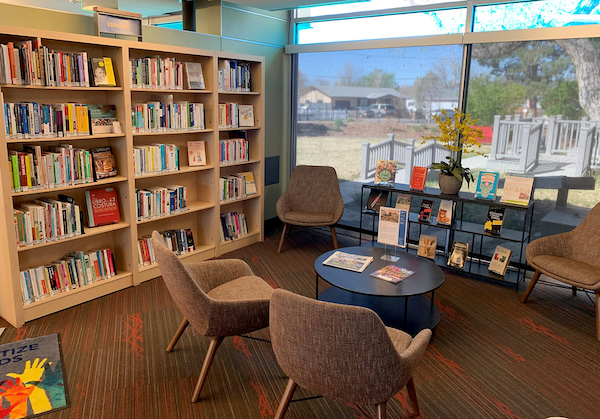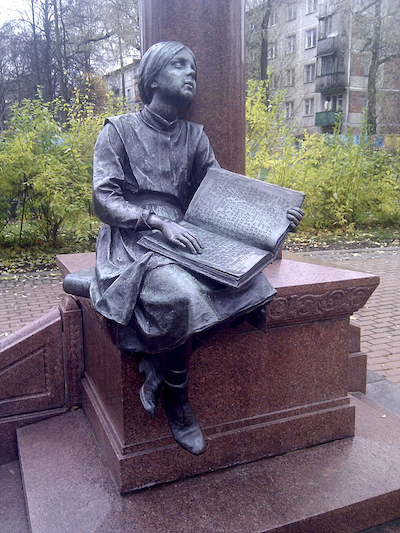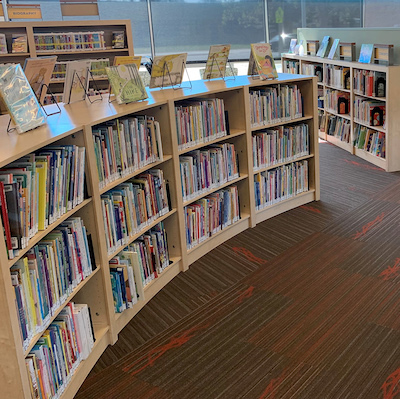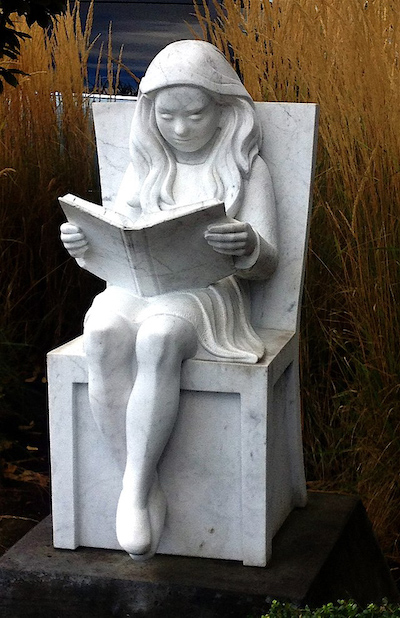Ricardo Cardenas and his family reside in Commerce City, Colorado, where he is the branch manager at Anythink Library and the lead pastor of Calvary Commerce City, a new church plant in their community. He is an Associate Fellow of the KLC.
I did not plan to start a career in public libraries. In fact, when I applied for a job at my local library, my only intention was to make a bit of money during my last semester of seminary before jumping into “real ministry.” Of course, in his providence, God’s lessons and plans for us are always far more gracious than we deserve.
Similar, I’m sure, to many young seminarians entering their final stage of graduate studies, my perception of the world was a bit lopsided during this phase of life. In some sense, I may have viewed the life and work of the church as superior to the work of other parts of society. I likely had an overly important view of myself and my calling from God to be a pastor. As a result of this inflated view of the “sacred” work of the church, you might say I also suffered from a deflated view of the way God works through other spheres in society – spheres that some might consider merely ordinary or perhaps “secular.”
Given these presuppositions, you can imagine my surprise and delight – even if mixed with some disorientation – when I entered the world of public libraries. What was this place filled with wonder, curiosity and optimism? Who were these people who nurtured the imaginations of young and old alike? What was this bastion of resources available to folks from all walks of life – regardless of their social, economic or racial background?

If you are well acquainted with the work of today’s public libraries, I am likely describing nothing new to you. But if you, like me prior to entering into this work, are unaware of the fruitful labours of these institutions, perhaps you might consider wandering into one soon. If you were to do so, you would find that far from simply being a storehouse for books (an important task, of course), the modern public library is so much more than this.
You would find, for example, community hubs devoted to providing early literacy programmes which lay the building blocks for future learning and flourishing for our youngest in society. You would also encounter library staff thinking deeply about how to offer care and dignity to people experiencing homelessness in their communities – even if this means providing a place to simply exist, free from harassment, during cold winter months or in the heat of summer. You might also find intentionally planned learning experiences for adults with cognitive and intellectual disabilities – one of few places offering such programming in our community.
Beyond this, you would find access to technology for those who have no access elsewhere, opportunities to build new relationships through book clubs, and in some libraries you may even encounter places to meaningfully discuss issues as difficult and diverse as racism, civic engagement, or the Vietnam War. All of these services, and more, are always offered free of charge to the community. This is a mere snapshot of the work of many public libraries today.

Upon first discovering this strange new world, my initial inclination was to engage with a posture of reserved observation. Although my background was not one of a sheltered Christian upbringing, nor was my theological education from a fundamentalist institution, my mostly evangelical convictions still required some sharpening and refining in order to make space for such a place in society. There were questions that needed answering.
How should Christians make sense of “secular” institutions that do so much that is objectively good in society? What role does the church have in addressing the various challenges in a community? Is my work as a pastor of a tiny congregation less meaningful than the abundance of good accomplished every day in our community’s libraries? In what way is God at work, if at all, in an organization whose mission is not explicitly Christian?
There are various trajectories I could have spun off towards in this theological quagmire, but over time I am thankful to have stumbled upon the deep well of resources offered by the Kuyperian tradition and the concept of God’s common grace. It is through this tradition that I have been helped to see a God who is big enough to bring good through all spheres of society, and a Christianity that is grounded and secure enough not to be threatened by such good gifts found in these places. It is also through this stream that I have encountered the reality
of a grace from God that operates and restores from deep within creation, rather than only working against or from above creation. If, as Abraham Kuyper argued, God’s grace is such that its roots penetrate into the joints and cracks of all of life, then there is great joy to be found, and meaningful work to be done, in all spheres of life – in the church, of course, but also in our schools, in local government, and as clearly shown above, in our public libraries.

Of course, this does not mean that the work of public libraries is perfect. This sphere of society (just like any other) is not exempt from the effects of the fall, nor is it exempt from various “culture-war” type issues encountered in other places in society. But today’s Christians can benefit tremendously from a theological framework that helps us see the good ways that God is at work in the world around us, even in places not traditionally viewed as such. In times of intense political division and cultural polarization, it is not uncommon to see Christians fall into despair, hopelessness, or fear at the “secularization” of the world around us. In such an environment, many are tempted either to retreat completely from society, or to dig in their heels in opposition to the culture around us.
At such a time as this, I would like to invite brothers and sisters in Christ to consider an alternative posture toward the world around us – one that is more hopeful, more joyful, and, I would argue, more robustly biblical. Indeed, I would like to invite you to visit your local public library. Browse its collection – filled with books you agree with and many that you may not. Observe the people. Look at what programmes are being offered. Take a deep breath and ask yourself this question: “What good can I see here?”
Surely, there is much that is good. Then consider these words from James to the church in the diaspora: “Every good gift and every perfect gift is from above, coming down from the Father of lights, with whom there is no variation or shadow due to change” (Jas 1:17). Indeed, God is the giver of all that is good in this fallen world, regardless of where we encounter this good. If this is true, then there is always hope to be found in almost every place you might look. Not a shallow or superficial hope, but a hope that is grounded in the God who is sovereign over every square inch of creation.

The Kirby Laing Centre for Public Theology in Cambridge. Charity registered in England and Wales. Charity Number: 1191741
Kirby Laing Centre, The New Mill House, Unit 1, Chesterton Mill, French’s Road, Cambridge, CB4 3NP
© 2022 The Kirby Laing Centre for Public Theology in Cambridge